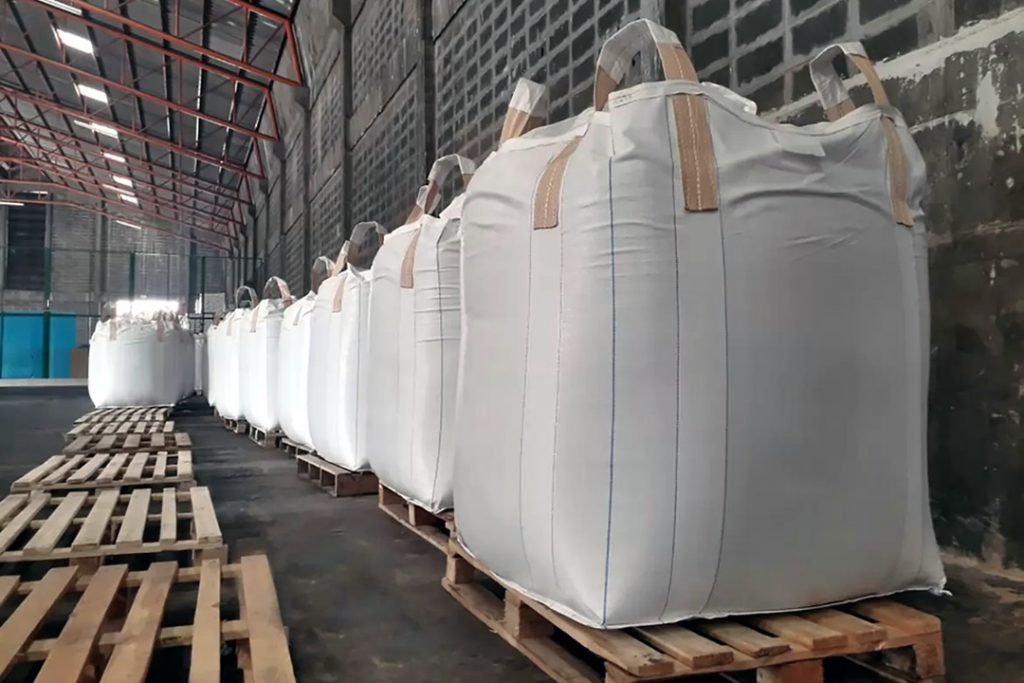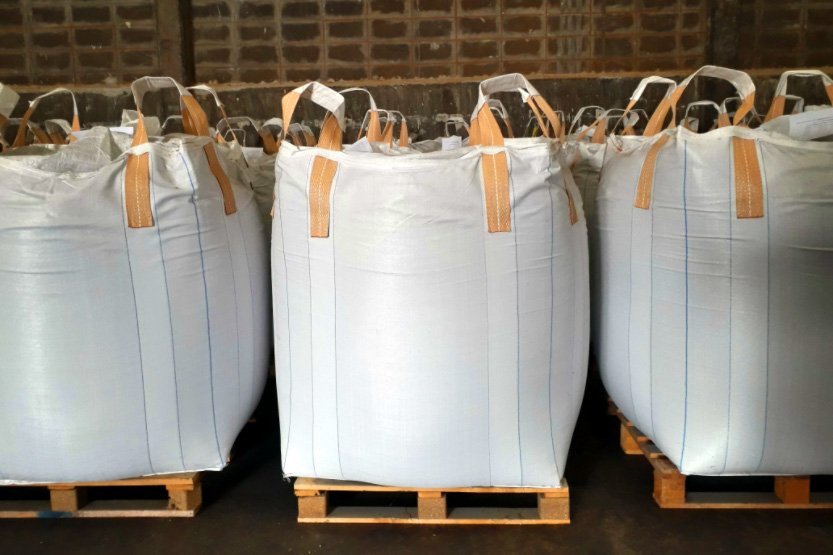Static electricity becomes a major worry when working with things that could catch fire or explode. Here’s where Type C and Type D bulk bags come into play, providing different approaches to controlling electrostatic discharge (ESD).
When an electrically charged object comes into contact with a grounded object or another charged object, electrostatic discharge, sometimes referred to as static shock, happens. Static electricity is a serious risk in industrial environments when working with combustible materials such as liquids, powders, and dust.
Static discharge sparks have the potential to ignite these materials, resulting in explosions and spontaneous flames. Custom Bulk Bags is a reputable local manufacturer of FIBCs and we understand the importance of using the right bulk bags for the job.
We are dedicated to providing high-quality packaging solutions that are tailored to your specifications. We produce up to 3.5 million bulk bags per year and our products can safely hold between 500kg and two tonnes of material per bag, depending on your needs. These include Type C anti-static bulk bags.

Type C bulk bags: Grounded and conductive
The purpose of Type C bulk bags, sometimes referred to as conductive bulk bags, is to safely disperse static charge into the ground by conducting it away from the bag. In order to accomplish this, conductive threads are woven into the bag’s fabric. Grounding tabs on the outside of the bag are attached to these threads.
Appropriate earthing practices are essential for Type C bulk bags to operate efficiently. This entails using a grounding cable and a clamp to attach the grounding tabs on the bag to an appropriate grounding point.
Utilising Type C bulk bags
The conventional method for managing explosive or combustible materials involves using Type C bulk bags. They are perfect for flammable powders, such as those containing sulfur, magnesium, and certain kinds of plastic. These powders have the potential to build up static charge and catch fire or explode. By efficiently dissipating static electricity, Type C bulk bags minimise this concern.
Type C bags can also be used to store and transport combustible powders, such as sawdust and flour. Believe it or not, these fine particles can combust when they rub against one another during discharge. The friction and heat generated can cause a static spark to ignite the powders, so a Type C bulk bag must be used in these instances.

Type D bulk bags: Dissipative static
Static dissipative bulk bags, or Type D, provide an alternative method of ESD control. They do not require grounding, in contrast to Type C. Rather than requiring an external connection, the fabric is made to securely disperse static charge.
The fabric has unique additives or filaments that let static charges disperse over the surface area of the bag gradually. Type D bags do not require grounding procedures, which makes handling easier and lowers the possibility of human error when earthing.
Applications for Type D bulk bags
These bulk bags work especially well for controlling static electricity when used with powders that can catch fire, much like Type C bags do. However, they are also good for less flammable items. They can offer adequate protection for products that have a lower risk of fire or explosion than those that require Type C bags.
These bags are also useful in environments with grounding challenges; Type D bulk bags provide a more straightforward solution in scenarios where creating an appropriate grounding point is challenging or not possible.

Choosing between Type C or Type D bulk bags
Whether you need a Type C or Type D bulk bag depends on a number of criteria. Firstly, assess the flammability of the substances you will be storing and transporting. This is the most important factor to take into account. Generally, materials that are very combustible need the stronger ESD protection that Type C bulk bags provide.
Also, assess your grounding feasibility. Type D FIBCs remove the complication involved in creating a dependable grounding point if it is difficult. If your warehouse has not got any grounding points installed and it is too expensive to have them put in, then consider using Type D bulk bags.
Custom Bulk Bags has a team of experts on-hand to offer consultations. This process enables us to create the perfect bulk packaging solutions for your needs. We will discuss your business and products in depth to get a full understanding of your requirements before making an informed decision on which type of bulk bags you will need.
We manufacture Type C anti-static bulk bags in South Africa, allowing us to deliver to local customers in a short amount of time. For more information about our bulk bags or to get advice on the ideal design specifications, please contact us today.
___
Custom Bulk Bags is a leading South African manufacturer of woven polypropylene bags for various industries, such as mining, chemicals and food. We are able to produce over 3.5-million bulk bags per year, keeping our customers in stock at all times. Our bags adhere to the highest levels of quality as a result of our stringent in-house testing and quality control programmes.
Custom Bulk Bags holds ISO 9001 certification and we currently have a number of UN-certified designs. We are a Level 2 B-BBEE manufacturer and supplier and fall under the ownership structure of Deneb Investments Limited. For more information on our products, contact sales@custombulkbags.co.za. Follow us on Facebook, LinkedIn and Instagram for our latest news and industry insights.

